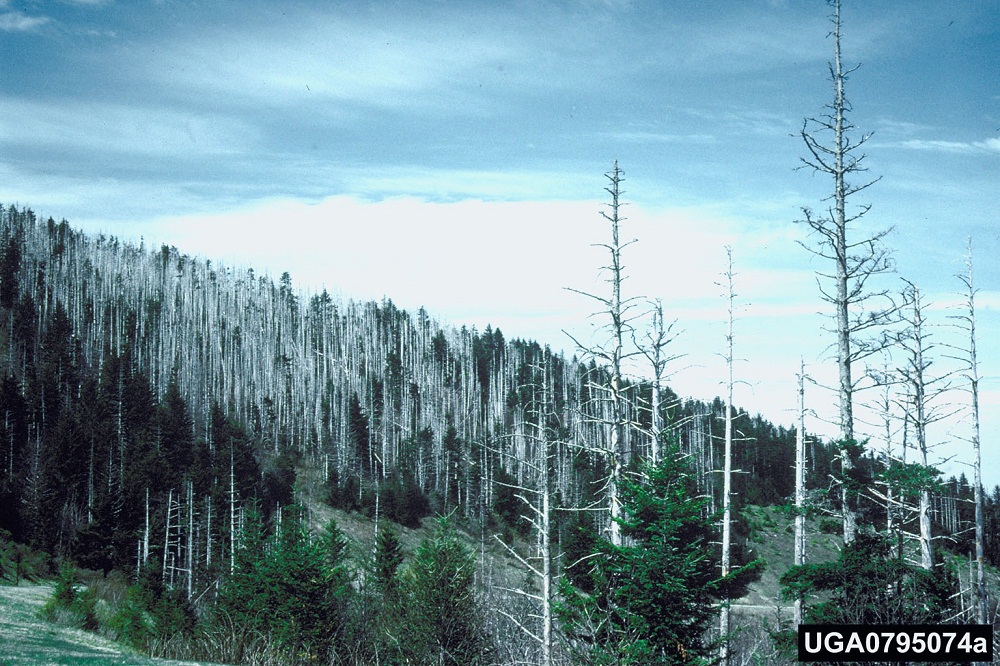Balsam Woolly Adelgid- NOT YET IN REGION
Common Name: Balsam woolly adelgid
Scientific Name: Adelges piceae
Origin: Europe
Description
Adults are tiny, about 1 mm long, and appear dark purple to black in color. They produce a thick layer of a light colored, waxy, wool-like material that covers their body.
Habitat
This insect infests and kills fir trees. North American species are the most sensitive to attack.
Threat
As the adelgids feed on the bark of stems, they release toxins contained in their saliva. These toxins severely weaken the tree, affecting development and growth. Extensive tree mortality has occurred in the Southeast and Northwest U.S.
Management
Several species of predatory insects have been introduced into North America, but they are ineffective on a large scale. Applying insecticides by aerial spraying over large areas is not possible, but spraying individual trees has proven effective.
Symptoms
Gouting occurs with distinct swellings around the buds and branch nodes as terminal growth is stunted. The foliage in a dying tree generally turns yellow then deep red or brown before the needles fall off and the tree dies.
Distribution: View Map
This species is NOT present in the FL- PRISM.







